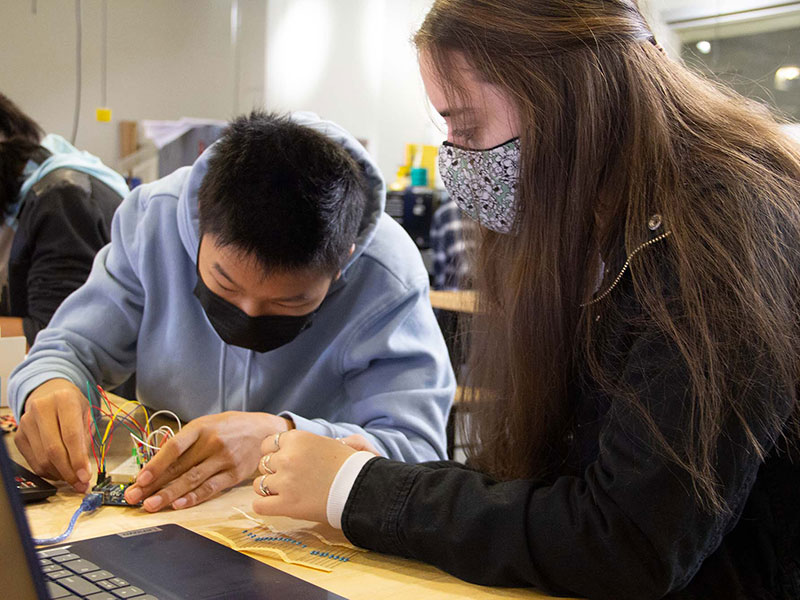Engineers have the power to change the world. A new approach to the first-year curriculum in the College of Engineering is helping to ensure that students realize this power and apply it to their studies throughout their time at Drexel.
The effort, dubbed Engineering for Social Justice (E4SJ), is an infusion of social-conscious thinking into existing classwork starting from the first term of a student’s education. The program launched last year.
Christopher Weyant, PhD, teaching professor of materials science and engineering, is leading the application of this framework. He says that redesigning existing courses can help students realize their potential sooner.

“We talk a lot about how engineers are problem solvers and about the scope of the problems that we can solve, but we don’t talk often enough about the human impact,” Weyant says. “Whether it’s something as simple as considering all the stakeholders that a big construction project will have or the complexity of the problems we face and the potential solutions, we want students to be thinking about all of these things with every project they start.”
To ensure that every student was introduced to the concepts of E4SJ, Weyant proposed weaving socially conscious lessons throughout ENGR 111, Introduction to Engineering Design & Data Analysis, a class taken by all first-year students. He designed a number of changes to the course to infuse the message. A highlight of diverse engineers, showcasing pioneers in the industry from a wide variety of backgrounds are presented weekly. Another is the addition of thought exercises with social justice messaging to several class sessions.
“In the last week of ENGR 111, we presented a lecture on social justice and engineering, and then the students were given a case study on designing an autonomous car,” Weyant explains. “They chose roles that aligned with their major and considered the stakeholders in an autonomous car project that would relate to their role. They considered who would and who would not benefit from their design and from self-driving cars as a whole, and how their role could play a part in making sure that, for instance, the design of the car didn't make it so expensive as to price out some members of society.”
“We talk a lot about how engineers are problem solvers and about the scope of the problems that we can solve, but we don’t talk often enough about the human impact.”
Christopher Weyant
Another course tied to social justice in the first year is CIVC 101 – Introduction to Civic Engagement. Taken by all Drexel undergraduates, this course is designed to give students a basic understanding of key concepts and frameworks in civic engagement. In this class, students critically examine university-community relationships, power structures, and the concept of privilege. In order for engineering students to continue their self-exploration of the role of engineers in society, the basic framework of CIVC 101 will be introduced in ENGR 111 but with an engineering lens. Through discussion-based exercises, students will think about company-community relationships and the power structures that exist. They will also explore the importance of understanding all stakeholders needs and the holistic impact of engineering decisions on society.
“We hope to motivate engineering students’ exploration of their own identity to include their role as a future engineer,” Weyant says. “By encouraging them from the very beginning to think about the responsibilities they have as members of a global community, they will continue to bring that kind of thinking to their future life as engineers.”
Weyant says that the next step for E4SJ is to identify third-and fourth-year classes that can be infused with social justice curriculum and to incorporate justice-centered thinking into senior design projects.
“We know that many of our students are going to participate in the many opportunities at Drexel to work on social justice through free electives, civic engagement or student organizations,” Weyant says. “But by deliberately exposing all engineering students to these concepts in shared courses, we can provide an excellent opportunity to drive change.”